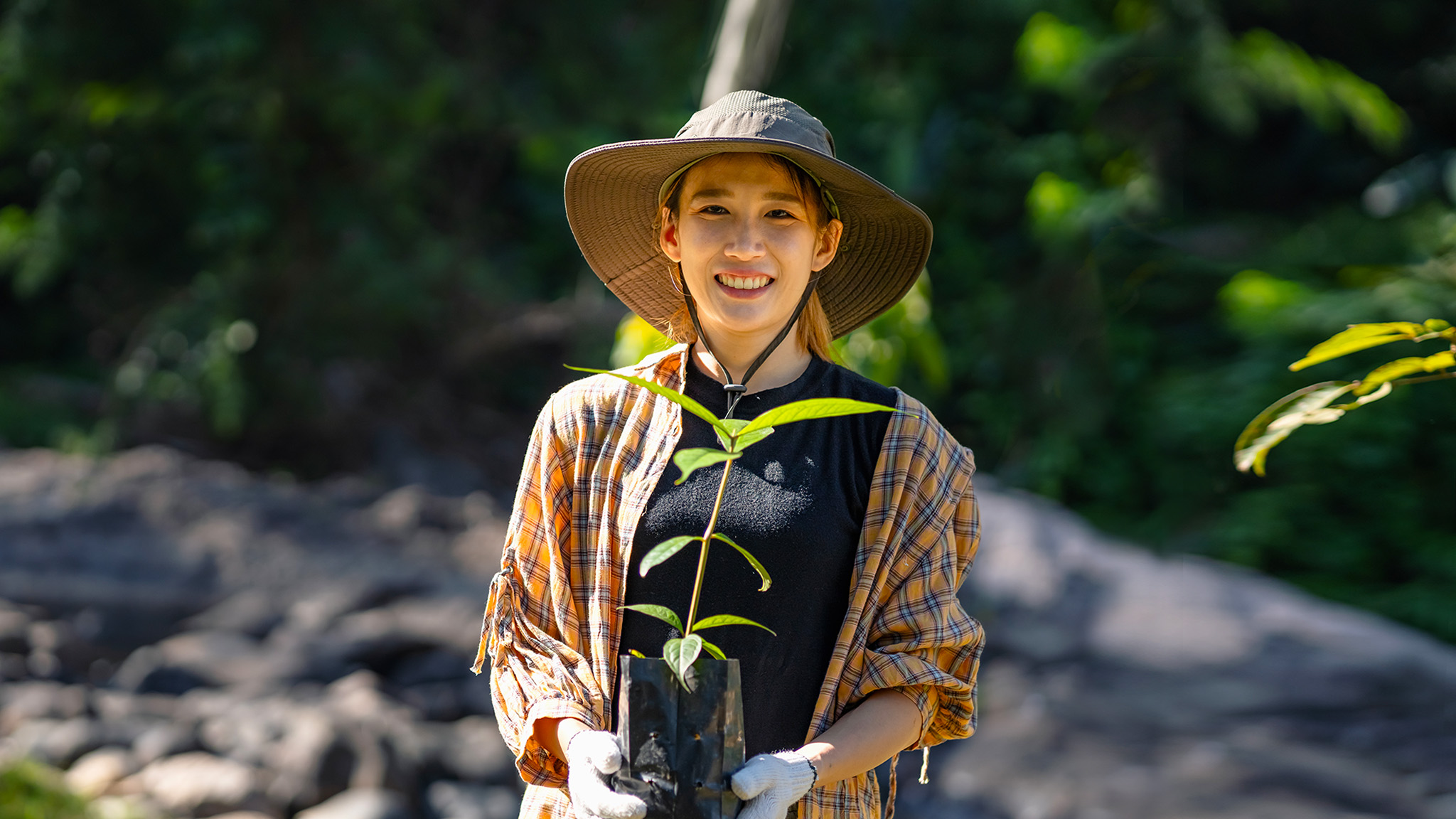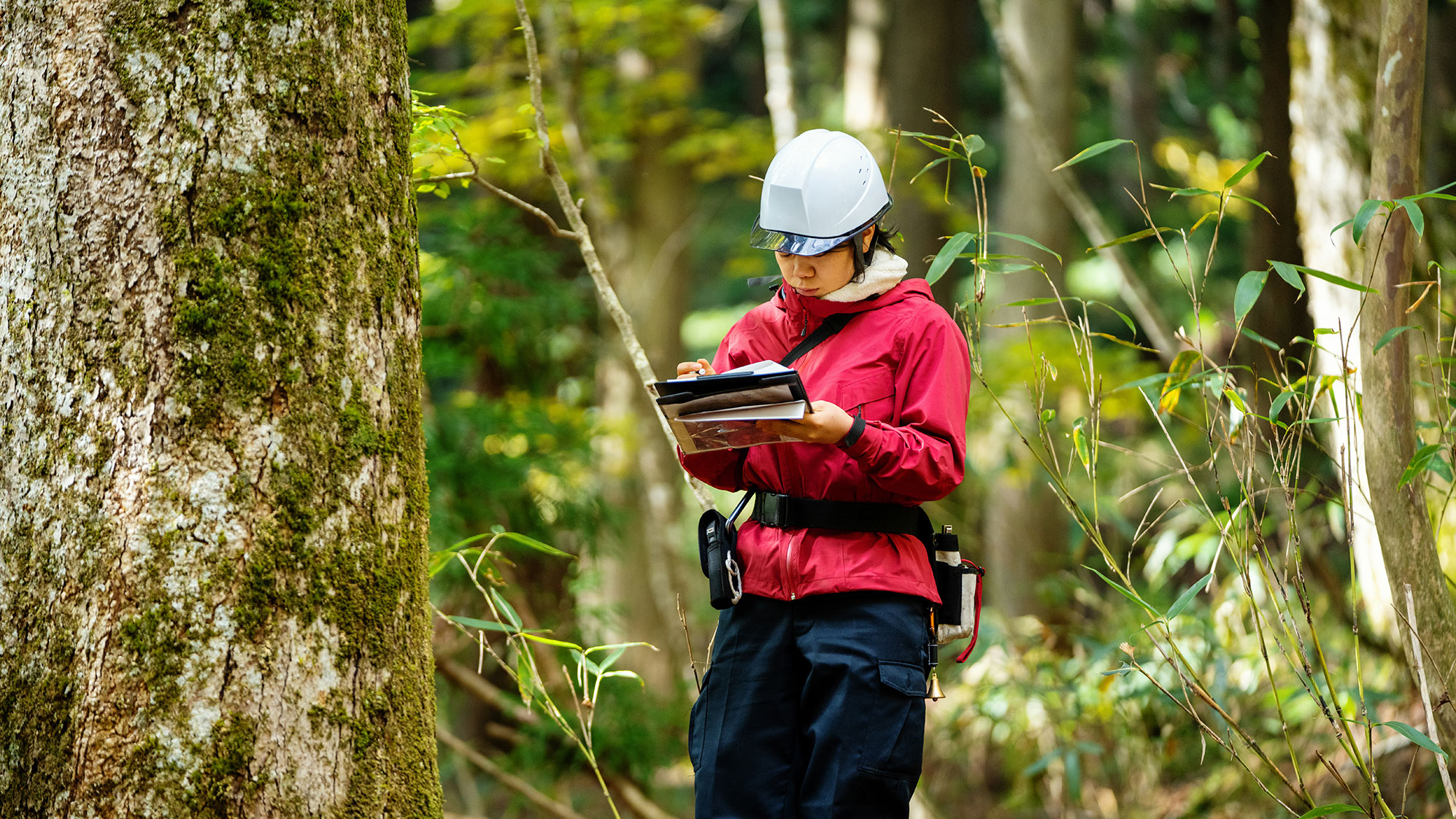
Climate Change andGender Equality
Empowering Women in the Battle Against Climate Change
While climate change affects everyone on the planet, historically it has been examined through the lens of the male-dominated sectors of scientific research and government policy. According to the UNESCO Institute for Statistics, less than 30% of the world’s researchers are women, while fewer than 13% of the Reuters Hot List of the world’s most influential climate scientists are female. However, there is a growing awareness of the vital role that gender perspective plays in the battle against climate change.
Studies indicate that climate change disproportionately affects women. The UN Foundation, an independent charitable organization that works closely with the United Nations, has found that women and girls suffer more than men during weather events such as heatwaves, droughts, and severe storms. For example, in their capacity as caregivers for the young and elderly, they bear the burden of finding food and water for their families and may not be able to evacuate from disaster areas. Despite this, women have often been excluded from participation in decision-making, and female representation in national and global climate negotiating bodies remains below 30%.


Agents of Change
Fortunately, things are changing. In 2015 the United Nations General Assembly adopted the 2030 Agenda for Sustainable Development as a framework for international development, including a goal on gender equality and the empowerment of women and girls. Similarly, the UN Commission on the Status of Women examined gender equality and climate for the first time in 2022, calling for concrete actions and consideration of women’s needs. And on March 8, 2022, the theme for International Women’s Day was set as ‘Gender equality today for a sustainable tomorrow’.
When women are included, everyone benefits. A 2022 report by the UN on climate change refers to women as “agents of change”, noting how they make more sustainable decisions that have a lasting impact on their families and communities. Integrating women into decision-making results in a wide range of favorable outcomes, including improved food security, fairer distribution of resources and better overall social equity.
Gender Representation
Although Japan is a world leader in terms of scientific research, and citizens enjoy a high standard of living, its international gender-equality rankings remain low, with women underrepresented in government and business leadership roles. Japan is also vulnerable to natural disasters such as typhoons, earthquakes, and landslides, making climate change an area of great concern. For example, as an island nation, food security and the environment are strongly linked for Japan. With the ever-present risk of climate change ahead, and an aging workforce, Japan’s agricultural sector needs revitalization. Women’s participation in agriculture equals that of men, yet they lack representation in leadership positions.

Against this background, Japan is striving to integrate gender perspective into its efforts towards mitigating the effects of climate change. Since 2014, the Japan-led Innovation for Cool Earth Forum has been serving as a platform to bring together leaders from industry, politics, and academia for dialogue about global warming. At the event in 2022, discussions were focused on gender equality. The Government of Japan has also been hosting the World Assembly for Women since 2014, as part of ongoing efforts to promote gender equality. The latest assembly (WAW! 2022) was held in December 2022, and included a breakout session entitled ‘Women and Environment/Green Society – Decarbonization from a Gender Perspective’.

A Holistic Approach
One of the members of the WAW! 2022 breakout session panel was Risa Endo, the Deputy Director General of the Japan Center for a Sustainable Environment and Society (JACSES). The non-profit organization aims to promote a fair and sustainable society, and Endo’s role at JACSES is to conduct research, advocate for policy change, and disseminate information on issues pertaining to climate change. This includes promoting measures in Japan and abroad that strengthen support for marginalized people impacted by climate change, and spearheading campaigns aimed at achieving net zero GHG emissions by reducing fluorocarbons, methane, and energy-derived CO2.
Endo says that Japanese women have always had less job stability and yet a greater share of the burden of care for family members, so natural disasters affect them more profoundly. “Women and girls often suffer unequally from the effects of climate change due to factors such as gender-based role divisions, and cultural and social norms. In particular, they are likely to face significant risks from the effects of climate change in emergencies such as disasters, poverty, war, conflict and political instability,” she explains.

To integrate gender perspectives into climate change measures, it is necessary to promote fair and meaningful participation by diverse stakeholders—including women—in planning and implementing processes for climate policies and measures.
Risa Endo, Deputy Director General, Japan Center for a Sustainable Environment and Society (JACSES)
According to Endo, one area where Japan does well is education for sustainable development (ESDs)—addressing environmental, social, and economic issues in a holistic way. She says it is important, like when disaster planning, to look at the bigger picture, connecting climate change to issues such as gender and poverty to reach an outcome that benefits everyone.
Far-Reaching Benefits
Also speaking at WAW! 2022 was panelist Mari Yoshitaka, a fellow on sustainability for the Mitsubishi UFJ Research and Consulting thinktank, and a visiting professor at Tokyo University’s College of Liberal Arts. She points out that international forums such as WAW! provide valuable opportunities for women from different countries to create connections and synergy. Like Endo, she says that considering various stakeholders is something that women tend to do well, and represents a tangible benefit of including their voices in decision-making.

“I think perhaps that women have more passion to change the world for the next generation, they work harder, and they are more open to sharing,” she says, adding that policies to benefit women are also likely to impact other marginalized groups, such as the elderly, those living with disabilities and the LGBTQ community.
Having worked to encourage Japanese companies to move toward carbon-neutral practices for over 20 years—including Shizen Energy, a renewable energy venture that appointed a female director in 2020—Yoshitaka is pragmatic.
The high-emissions industries and science fields in Japan are male-dominated. Getting them to look at things from a gender perspective will take time.
Mari Yoshitaka, Fellow (Sustainability), Mitsubishi UFJ
However, through the twin pillars of investment and technology, she believes that Japan can play an important role in leading other Asian countries towards sustainable growth and carbon neutrality, in line with the Japanese government’s Asia Energy Transformation Initiative.

While many challenges lie ahead, informed by global organizations such as the UN and the Intergovernmental Panel on Climate Change—that recently introduced its Gender Policy and Implementation Plan dedicated to mainstreaming gender in its work—and inspired by changemakers such as Yoshitaka and Endo, Japan will steadily work toward instigating organizational and policy changes to create more opportunities for women in the fight against climate change.





